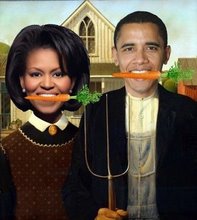The First Amendment
Then and Now
BLOG POSTED 10-30-10
posted on The Divining Nation [my space]
The separation between Church and State was established in the First Amendment because the framers wanted people to read it as part of the foundation upon which their new country would rest. They all had an intimate, personal knowledge of European history, and its tapestry shot with the darkest threads of religious wars. There have been armies commandeered by religious fanatics to wage "the apocalyptic war" against the state since the time of Christ. In fact, one of the more obvious reasons the Romans feared the early Christian movement was not philosophic subtlety; rather, Rome’s perception about people. Rome believed the multitude could be motivated by a religious prophet who could summon a bloody revolt against Roman rule.
European history used the same model [religion v state] for hundreds of years. The fear was that a spiritual zealot could raise an "end of days" army, and command a near hysterical mob to topple the state. Even greater, perhaps, was the fear the security of the treasury could be compromised. The religious war would cause a drain on the treasury because of excess pay for state and additional mercenary soldiers. If a credible military threat actually coincided with the revolt the state would go broke in defense of itself and would eventually fall to either or both of the hostile forces marshaled against it.
The founding fathers were well aware of European wars fought for centuries to the detriment of all participants, often due to intervention of religious influence in matters of state. One well known example of military conflict confounded by religious dogma appears in the historical relationship between England, France, and Italy, when St. Joan of Arc fought to regain her country from the English.
go The Maid of Orleans, Saint Joan of Arc
This story is so compelling, Mark Twain translated the transcription of the trial testimony, word for word, into English [in two volumes] as stated by Joan’s page and secretary Louis de Compte. Several plays have been written and performed about the story. Many films have been made highlighting the courage and passion of Saint Joan. Yet, to my knowledge no one has researched the cause of the internal weakness and vulnerability in France, at the time of the war, that gave England the power to conquer her. The integrity of France was compromised because there were four popes in the Christian world at the time, and various military alliances existed with each one of them.
The problem began and continued exclusively in the West – there was never a challenge to the Eastern Orthodox Pope. People who supported the papacy in Rome were challenged within the Christian Church. The disagreement led to a split at the highest levels of Church power. Those who could not support the Pope in Rome packed their bags and moved to Avignon, where they established a new spiritual centre, the formidable Avignon Papacy. The Christian world was divided – a religious civil war began.
Some of the cardinals tried to solve the mounting problem with a third, compromise Pope, to no avail. To make a long story short, no one knew how to govern in tandem with the Church, to whom tribute and allegiance should be pledged, and which sacraments were legitimate [a major problem with succession via the priesthood].
The solution was, naturally, war. The English and French were at war. Now war was waged by the political [French-English] cardinals and their army against those who were dedicated to the Papacy in Rome [Saint Joan and her whole village were devoted to the Roman Pope]. When Joan was captured she should have been ransomed, as custom dictated, and she would have been had the battle been one between two countries. However, the sub-text war was over religious affiliation, and so she was not ransomed as a captured general, rather put on trial for witchcraft, found guilty, and executed at the stake.
If anyone has any trouble understanding why our founders would want to build a wall between church and state, they have yet to read the transcript made available by Mark Twain. It clearly spells out the problem. So we find in the First Amendment, "no state religion" – meaning NO STATE RELIGION so our country will have a chance to survive.
It is unfortunate many people have not looked into Europe’s background or learned about those who shed blood, sweat, and tears because of confusion between church and state. Many have sacrificed in vain – so far. Can we at least agree the Crusades solved nothing, if we have no time to learn about the Mt. Everest of other church v state examples in human history?
Our founders knew exactly what they were doing when they built the wall between church and state. They protected all here as first hand witnesses. They came to this continent to design and begin a new world based on self-determined blueprints in contrast to the old.
The framers of our Constitution weren't real estate investors, international traders, or advocates of a plan to extend the misery that pervaded Europe for centuries. Their Jeffersonian principles were simple: abolish interaction between church and state, no titles, and no possibility of an aristocracy. They were visionaries who built this country to last.



